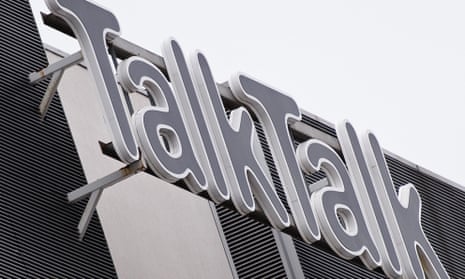Navigating the TalkTalk Financial Landscape
Estimated reading time: 7 minutes
Key Takeaways
- TalkTalk is currently experiencing significant financial strain, marked by customer decline and revenue drops.
- Its broadband customer base has shrunk to 3.2 million, intensifying TalkTalk financial problems UK 2025.
- The company secured a crucial £400 million refinancing deal in late 2024 but retains a high debt burden near £1.2 billion, raising TalkTalk business solvency concerns.
- Reports confirm TalkTalk missed payment deadlines to key suppliers, highlighting serious cash flow issues.
- TalkTalk’s challenges reflect broader systemic pressures affecting the entire UK broadband industry.
- While concerns exist about TalkTalk broadband collapse risk, regulatory safeguards make abrupt service shutdowns highly unlikely; a break-up or acquisition is more probable.
- Existing customers should monitor official communications, understand their contracts, and research alternatives to prepare for any changes influencing the future of TalkTalk customers.
Table of Contents
- Introduction: Navigating the TalkTalk Financial Landscape
- Unpacking TalkTalk’s Current Financial Health
- The Broader UK Telecom Sector: A Crisis Analysis
- Addressing the “Collapse Risk”: Dispelling Rumours vs. Realistic Scenarios
- Implications and the Future of TalkTalk Customers
- Conclusion: What Comes Next for TalkTalk and the UK Broadband Market
- Frequently Asked Questions
Introduction: Navigating the TalkTalk Financial Landscape
There’s been considerable public and media interest surrounding the financial stability of TalkTalk lately. As concerns grow regarding TalkTalk financial problems UK 2025 and the company’s ability to maintain reliable broadband services for millions of UK households, scrutiny has intensified around TalkTalk business solvency concerns. This isn’t just background noise; it reflects a genuine unease about one of the UK’s prominent telecom providers.

This blog post aims to cut through the noise and provide a comprehensive, fact-driven analysis of TalkTalk’s current financial situation. We will delve into its financial metrics, place them within the broader UK telecom company crisis analysis, discuss potential TalkTalk broadband collapse risk scenarios, and outline the real future of TalkTalk customers. Our goal is to offer a clear, fact-driven analysis of TalkTalk’s situation, based on reputable research, avoiding speculation and sensationalism, and fulfilling your need for accurate information.
Unpacking TalkTalk’s Current Financial Health
TalkTalk’s recent financial disclosures paint a picture of a company under significant strain, leading to increased TalkTalk business solvency concerns across the industry and among its customer base. The figures reveal a challenging period that underscores the volatile nature of the modern telecom market.
One of the most striking indicators is the noticeable decline in its customer base. As of February 2025, TalkTalk’s broadband customer count has decreased to 3.2 million, a substantial loss of 400,000 customers from the 3.6 million reported the previous year. This shrinking customer base is a key indicator of TalkTalk financial problems UK 2025, as highlighted by reports from sources like ISPreview and DataCenterDynamics.

Accompanying the customer attrition are significant drops in revenue and earnings. Annual revenues have fallen by 7% to £1.4 billion. Even more critically, EBITDA (Earnings Before Interest, Taxes, Depreciation, and Amortization) decreased from £157 million to £128 million. These figures, also reported by ISPreview, demonstrate a tightening financial squeeze on the company’s core operations.
TalkTalk narrowly avoided default in late 2024 by securing a crucial £400 million refinancing deal, which included a £235 million cash injection from shareholders. However, the company’s total debt remains alarmingly high, hovering near £1.2 billion. This substantial debt amplifies TalkTalk business solvency concerns, as detailed in reports from ISPreview, DataCenterDynamics, and The Telegraph.

In response to these pressures, TalkTalk has initiated significant operational adjustments. This includes a reported 20% reduction in its workforce, a drastic measure aimed at streamlining costs. Additionally, the company has undertaken a strategic split into three distinct business units – Consumer, Business, and Wholesale – a move intended to unlock value and potentially attract future investment, as noted by DataCenterDynamics.
Perhaps one of the most serious concerns recently came to light with reports confirming TalkTalk recently missed payment deadlines to key suppliers. Specifically, the company delayed payments to essential partners like BT Openreach and CityFibre. These overdue bills, reportedly amounting to tens of millions of pounds monthly, were eventually settled. However, the delays themselves sparked industry-wide concern over TalkTalk’s cash flow problems, a situation that gained significant attention from sources like PenBrief, Proactive Investors, DataCenterDynamics, and The Telegraph.
In summary, TalkTalk remains deeply challenged by consistent customer attrition, declining revenues, a substantial debt burden, and ongoing cash flow instability. These issues are further magnified by a tough economic climate generally affecting UK businesses, contributing to severe TalkTalk financial problems UK 2025, as widely reported by ISPreview, DataCenterDynamics, and The Telegraph.
The Broader UK Telecom Sector: A Crisis Analysis
It’s important to understand that TalkTalk’s specific troubles are not isolated incidents. Instead, they mirror systemic pressures affecting the entire UK broadband industry, forming part of a broader UK telecom company crisis analysis. This sector faces a confluence of challenges that are putting even the largest players under immense pressure.

One of the primary drivers of this pressure is intense competition. New, low-cost alternative network providers (AltNets) are aggressively entering the market, often offering competitive pricing and advanced fibre services. These agile newcomers are rapidly taking market share from established players like TalkTalk, forcing incumbents to either reduce prices or lose customers, as noted by ISPreview.
Compounding this competitive landscape are the incredibly high investment costs associated with upgrading infrastructure. The nationwide rollout of fibre broadband requires massive capital expenditure. Companies must balance these colossal investments with ongoing debt repayments, creating significant financial stress. This push for advanced connectivity, as discussed in articles about 5G connectivity, applies equally to fibre infrastructure.

Furthermore, the telecoms sector faces increasing regulatory scrutiny from bodies like Ofcom. This regulation, often aimed at ensuring reliability, promoting fair competition, and safeguarding consumer access to essential services, can lead to higher compliance costs for providers. Discussions around new AI regulations demonstrate a broader trend towards increased oversight in tech-driven sectors, which extends to telecoms.
TalkTalk’s payment issues have significant ripple effects, illustrating the deep interdependencies within the industry. Missed payments to a major partner like BT could potentially impact BT’s free cash flow by up to 11% and disrupt Openreach’s business model. This interconnectedness highlights why a comprehensive UK telecom company crisis analysis is crucial, as reported by Proactive Investors.
While TalkTalk’s situation is particularly acute, it’s useful to compare its circumstances with other major ISPs like BT and Virgin Media O2. While these larger companies may benefit from greater scale and more diversified operations, all face the dual challenge of fierce competition and rising costs. Consider the following comparison:
- Customer Loss: TalkTalk is experiencing severe customer loss, whereas other major ISPs see mild to moderate losses.
- Debt Pressure: TalkTalk faces very high debt pressure, compared to moderate pressure for others.
- Supplier Payment Risk: TalkTalk shows acute supplier payment risk, while it is low for other major players.
- Market Share Threat: TalkTalk faces intense market share threat from AltNets, significant for others.
In conclusion, while TalkTalk’s TalkTalk financial problems UK 2025 are severe and capture headlines, they are a stark example of broader challenges facing the sector. This indicates why a thorough UK telecom company crisis analysis is not merely pertinent but essential for understanding the future of connectivity in the UK.
Addressing the “Collapse Risk”: Dispelling Rumours vs. Realistic Scenarios
The prevalent concern regarding TalkTalk broadband collapse risk is understandable, given media reports and the scale of the company’s operations affecting millions of households. While industry insiders and government officials are reportedly alarmed by the prospect of a major provider facing significant difficulties, it’s critical to state clearly: TalkTalk is not in administration as of July 2025, as confirmed by The Telegraph. It’s important to differentiate between financial distress and an immediate, catastrophic failure.

So, what does a “collapse” realistically mean for a large-scale telecom provider? It rarely signifies a complete, sudden shutdown of services. Instead, the process is typically managed and orderly, designed to preserve service continuity and mitigate widespread disruption.
The most probable outcome in a severe financial crisis would be an orderly break-up and sale of TalkTalk’s assets or specific business units to other telecom operators. This strategy is designed precisely to preserve service continuity for customers and minimize the TalkTalk broadband collapse risk. Larger competitors or private equity firms might acquire TalkTalk’s infrastructure and customer base, followed by a restructuring of its significant debts. This approach allows for a controlled transition rather than a chaotic failure.

The crucial role of the regulatory environment cannot be overstated. UK telecom law and Ofcom regulations prioritize the continuity of essential broadband services. This means a sudden, unplanned shutdown of services is highly unlikely. Safeguards are specifically designed to minimize disruption to customers, even in the event of insolvency, as emphasized by The Telegraph.
Despite sensational headlines, the likelihood of customers being abruptly cut off or left unsupported is low due to robust regulatory oversight. However, users should be aware that a restructuring or sale could result in changes to service terms, pricing adjustments, or the need for customers to switch providers. These possibilities directly influence the future of TalkTalk customers. This section directly addresses the TalkTalk broadband collapse risk by providing factual scenarios and regulatory assurances, helping users understand the nuances beyond alarmist narratives about TalkTalk financial problems UK 2025.
Implications and the Future of TalkTalk Customers
For existing TalkTalk customers, the most pressing question revolves around service continuity. In most plausible scenarios related to TalkTalk financial problems UK 2025, your broadband services would indeed continue. This would likely happen under new ownership or management. However, customers should be prepared for potential changes in pricing or service terms, directly impacting the future of TalkTalk customers.

To stay informed and prepared, we offer the following actionable advice for current TalkTalk customers:
- Monitor Official Communications: Advise customers to vigilantly monitor official communications directly from TalkTalk and, crucially, from the independent regulator, Ofcom, for reliable updates.
- Understand Contract Terms: Encourage customers to review their current contract terms, especially any early exit clauses, cancellation policies, or notice periods. This understanding will help you grasp your options if you consider switching, as discussed in warnings about broadband scams which emphasize vigilance.
- Research Alternative Providers Carefully: Suggest exploring other broadband providers as a proactive measure, but caution against acting on misinformation or unofficial “scare stories.” Emphasize relying on reputable sources for comparison.
Should you decide to switch providers, here’s some clear guidance on the process:
- Customers generally have the right to switch broadband providers at any time, though early termination fees might apply if you’re still within your minimum contract period.
- Advise them to follow Ofcom’s official guidance and processes for switching. This ensures a smooth transition and helps avoid any service gaps during the changeover, similar to guidance provided for claiming compensation for network outages.
This section aims to empower future of TalkTalk customers by giving them concrete steps and realistic expectations in light of TalkTalk’s financial situation. Being prepared is the best defence against potential disruptions.
Conclusion: What Comes Next for TalkTalk and the UK Broadband Market
To recap, TalkTalk’s financial problems in 2025 have undeniably positioned it at the heart of significant challenges for the UK’s telecom sector. The company has grappled with consistent customer losses, a heavy debt burden, documented late payments to key suppliers, and relentless market competition. These issues are starkly illustrated by falling customer numbers to 3.2 million and a 7% drop in annual revenues to £1.4 billion, as detailed by ISPreview, DataCenterDynamics, and The Telegraph.

Looking forward, while the immediate TalkTalk broadband collapse risk appears to have been averted through recent refinancing efforts and strategic management adjustments, underlying structural issues persist. This suggests that temporary stability might give way to more fundamental changes, potentially leading to a future restructuring, a complete sale, or a strategic breakup of the company. Such a scenario is a common outcome for heavily leveraged companies in highly competitive markets, and it has been widely discussed by ISPreview, DataCenterDynamics, and The Telegraph.
TalkTalk’s current situation serves as a critical case study for the wider UK telecom industry. Its plight underscores both the inherent volatility of a market driven by fierce competition and massive infrastructure investment, and the paramount importance of robust financial management. It also highlights the stringent regulatory safeguards in place within the UK broadband market, which are designed to protect consumers. This forms a vital part of the overall UK telecom company crisis analysis, indicating that no provider is entirely immune to market pressures.
For consumers, the final message is one of informed decision-making. We advise customers to remain informed, vigilant, and prepared to take action if necessary regarding their future of TalkTalk customers experience. Keep a close eye on official announcements and be proactive in understanding your options. Importantly, customers can be comforted by the presence of regulatory protections, particularly from Ofcom, which are designed to ensure essential services continue, even amidst corporate upheaval, as noted by The Telegraph. Your connectivity is a priority, and mechanisms are in place to safeguard it.
Frequently Asked Questions
- Q1: Is TalkTalk going out of business?
A1: As of July 2025, TalkTalk is not in administration or going out of business. While it faces significant financial challenges and has secured refinancing deals, regulatory safeguards are in place to ensure service continuity for its customers. A more likely scenario in a severe crisis would be an orderly sale or restructuring rather than an abrupt shutdown.
- Q2: What should I do as a TalkTalk customer?
A2: It’s advisable to stay informed by monitoring official communications from TalkTalk and Ofcom. Review your contract terms, especially cancellation policies. While not immediately necessary, researching alternative broadband providers can help you understand your options should you decide to switch in the future. Don’t act on unverified rumors.
- Q3: Will my broadband service be affected if TalkTalk restructures or is sold?
A3: In most restructuring or sale scenarios, your broadband service is expected to continue without interruption. Regulatory bodies like Ofcom prioritize service continuity. However, you should be prepared for potential changes to your service terms, pricing, or the company name under which you receive service.
- Q4: Why is TalkTalk facing financial problems?
A4: TalkTalk’s financial strain stems from a combination of factors including a significant loss of broadband customers (400,000 in one year), declining revenues and earnings, a high debt burden (around £1.2 billion), and recent issues with late payments to suppliers. These challenges are compounded by intense competition from new providers and high infrastructure investment costs across the UK telecom sector.
- Q5: Is the entire UK telecom industry in crisis?
A5: While TalkTalk’s issues are severe, they highlight broader systemic pressures affecting the UK telecom sector. This includes intense competition from AltNets, high costs for fibre infrastructure upgrades, and increasing regulatory scrutiny. Major players like BT and Virgin Media O2 also face these challenges, though perhaps with greater resilience due to scale and diversification. So, while “crisis” might be strong for the entire industry, it is undergoing significant stress and transformation.






